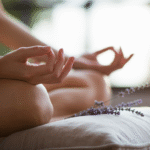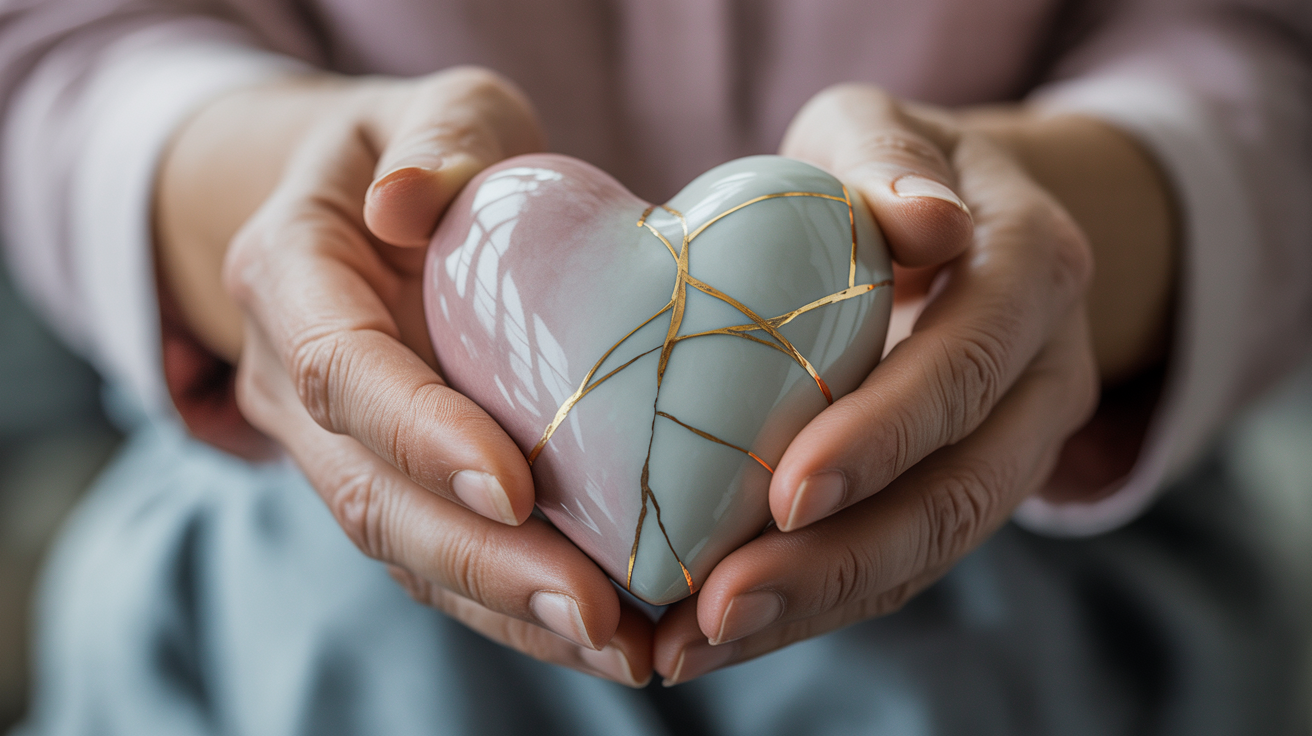
50 Deep Self-Reflection Questions to Discover Your True Self
When was the last time you asked yourself who you really are beneath all the roles you play, the expectations you meet, and the masks you wear?
In our fast-paced world, we spend so much time responding to external demands that we rarely pause to check in with our inner selves. Yet research shows that people who engage in regular self-reflection are 23% more likely to experience improved performance and reduced stress levels.
This collection of 50 powerful questions will guide you on a journey inward, helping you uncover your authentic values, desires, and purpose. Whether you’re at a crossroads in life or simply seeking deeper self-awareness, these questions will illuminate parts of yourself you may have forgotten or never knew existed.
What Is Deep Self-Reflection?
Self-reflection is the practice of examining your thoughts, feelings, behaviors, and motivations with honest curiosity. Unlike surface-level thinking about daily tasks, deep self-reflection involves questioning your core beliefs, values, and the “why” behind your choices.
Psychologist Dr. Tasha Eurich, who has researched self-awareness extensively, defines it as “the ability to see ourselves clearly—to understand who we are, how others see us, and how we fit into the world.” Her studies reveal that while 95% of people think they’re self-aware, only 10-15% actually are.
Deep self-reflection goes beyond awareness to include understanding. It’s about connecting the dots between your past experiences, present choices, and future aspirations.
The Core Elements of Meaningful Self-Reflection
Effective self-reflection encompasses several key dimensions:
Values and Beliefs: Understanding what truly matters to you and why certain principles guide your decisions.
Emotional Patterns: Recognizing how you respond to different situations and what triggers specific emotional reactions.
Relationships and Connections: Examining how you relate to others and what you seek from human connections.
Purpose and Meaning: Exploring what gives your life significance and how you want to contribute to the world.
Growth and Learning: Identifying patterns in how you develop, what motivates you to change, and where you want to evolve.
Think of these elements as different lenses through which you can examine your inner landscape, each revealing unique insights about who you are.
Why Self-Reflection Matters More Than Ever
In an age of constant connectivity and external validation, self-reflection has become a revolutionary act of self-care. The benefits extend far beyond personal satisfaction.
Enhanced Decision-Making: When you understand your values and motivations, you make choices aligned with your authentic self rather than external pressures.
Improved Relationships: Self-awareness helps you communicate more effectively and form deeper connections with others.
Reduced Anxiety and Stress: Understanding your emotional patterns allows you to respond rather than react to challenging situations.
Increased Life Satisfaction: Research by Harvard Business School shows that people who spend 15 minutes reflecting on their day show 23% better performance and greater happiness.
Career Clarity: Knowing your strengths, passions, and values helps you pursue work that feels meaningful rather than just profitable.
The most successful and fulfilled individuals aren’t necessarily the smartest or most talented—they’re the ones who know themselves deeply and make choices accordingly.
Common Obstacles to Honest Self-Reflection
Despite its benefits, many people struggle with self-reflection. Understanding these challenges can help you navigate them more effectively.
Fear of What You’ll Discover: Sometimes we avoid looking inward because we’re afraid of what we might find—unfulfilled dreams, unresolved pain, or uncomfortable truths about ourselves.
Lack of Time: In our busy lives, reflection often feels like a luxury we can’t afford. Yet the busier you are, the more you need it.
Social Conditioning: We’re taught to focus outward—on achievements, appearances, and others’ opinions—rather than developing inner awareness.
Perfectionism: Some people avoid self-reflection because they want to have all the answers immediately, rather than sitting with uncertainty and gradual understanding.
Comparison Trap: Getting caught up in how you measure against others instead of focusing on your own growth and journey.
Remember, self-reflection is a practice, not a destination. The goal isn’t to achieve perfect self-knowledge but to develop greater awareness over time.
Tools and Frameworks for Deeper Reflection
Several proven methods can enhance your self-reflection practice:
Journaling: Writing by hand activates different parts of the brain than typing, often leading to deeper insights. Try stream-of-consciousness writing for 10-15 minutes.
The Values Card Sort: Create cards with different values (family, creativity, security, adventure) and rank them in order of importance to you. Notice which values guide your major life decisions.
The Wheel of Life: Draw a circle divided into 8 sections representing different life areas (career, relationships, health, etc.). Rate your satisfaction in each area from 1-10 to identify imbalances.
Meditation and Mindfulness: Regular meditation practice creates space for insights to emerge naturally without forcing answers.
The Enneagram: This personality system helps you understand your core motivations and unconscious patterns of behavior.
Regular Check-ins: Schedule weekly or monthly “meetings with yourself” to assess how you’re feeling and what you’re learning.
How to Use These 50 Questions Effectively
To get the most from these reflection questions, approach them with intention and patience.
Step 1: Create the Right Environment
Choose a quiet space where you won’t be interrupted. Turn off notifications and create a sense of ritual—perhaps light a candle or make tea. This signals to your mind that this time is sacred and important.
Step 2: Choose Your Method
Decide whether you’ll write your answers, speak them aloud, or simply contemplate them. Writing often reveals deeper insights, but choose what feels most natural for you.
Step 3: Start Small and Go Deep
Rather than rushing through all 50 questions, select 3-5 that resonate with you. Spend 10-15 minutes with each one, allowing thoughts and feelings to emerge without judgment.
Step 4: Embrace Uncertainty
You don’t need to have perfect answers. Sometimes the most valuable insights come from sitting with questions that make you uncomfortable or uncertain.
Step 5: Return and Revisit
Come back to these questions periodically. Your answers will evolve as you do, and that evolution is part of the journey.
The 50 Deep Self-Reflection Questions
Values & Beliefs
-
What principles would you never compromise, even under pressure?
-
When have you felt most proud of who you are?
-
What beliefs from your childhood still influence you today?
-
What would you do if you knew you couldn’t fail?
-
What does success mean to you personally?
Relationships & Connection
-
Who in your life truly sees and accepts you as you are?
-
What patterns do you notice in your closest relationships?
-
How do you show love, and how do you prefer to receive it?
-
What relationship in your life has taught you the most about yourself?
-
When do you feel most connected to others?
Emotions & Inner Life
-
What emotion do you avoid feeling, and why?
-
What brings you genuine peace?
-
When do you feel most like yourself?
-
What are you most grateful for right now?
-
What makes you feel truly alive?
Purpose & Meaning
-
What problems in the world do you feel called to help solve?
-
What would you do if money wasn’t a factor?
-
What legacy do you want to leave behind?
-
What activities make you lose track of time?
-
How do you want to be remembered?
Growth & Learning
-
What challenge has transformed you the most?
-
What do you need to forgive yourself for?
-
What pattern in your life are you ready to change?
-
What would you do if you trusted yourself completely?
-
What are you most curious about?
Fears & Courage
-
What would you attempt if you weren’t afraid of judgment?
-
What fears have held you back from living fully?
-
When have you surprised yourself with your own courage?
-
What would you say to your younger self?
-
What risk are you most afraid to take?
Dreams & Aspirations
-
What dreams have you put on hold?
-
What does your ideal day look like?
-
What would you do with an extra year of life?
-
What adventures call to your soul?
-
What would you create if you had unlimited resources?
Strengths & Talents
-
What comes naturally to you that others struggle with?
-
What compliments do you receive that you tend to dismiss?
-
When do you feel most confident and capable?
-
What would your best friend say are your greatest strengths?
-
What talent do you have that you’re not fully using?
Present Moment Awareness
-
What are you avoiding in your current life?
-
What brings you joy that costs nothing?
-
What habit would improve your life if you developed it?
-
What is your body trying to tell you right now?
-
What season of life are you in, and what does it require?
Integration & Wisdom
-
What wisdom have you gained that you wish you’d known sooner?
-
How have your struggles shaped your character?
-
What questions do you want to keep exploring?
-
What aspect of yourself are you still discovering?
-
If you could give the world one gift, what would it be?
Your Journey Inward Starts Now
Self-reflection isn’t a destination—it’s a lifelong practice of coming home to yourself. These 50 questions are invitations to explore the rich landscape of your inner world, where your truest wisdom and deepest fulfillment reside.
Remember, there are no right or wrong answers, only your answers. Trust the process, be patient with yourself, and allow insights to unfold naturally. Some questions may stir up emotions or memories—this is normal and often where the greatest growth occurs.
Start today by choosing one question that speaks to you. Set aside 15 minutes, breathe deeply, and begin the most important conversation you’ll ever have—the one with yourself. Your authentic life is waiting for you to discover it.








